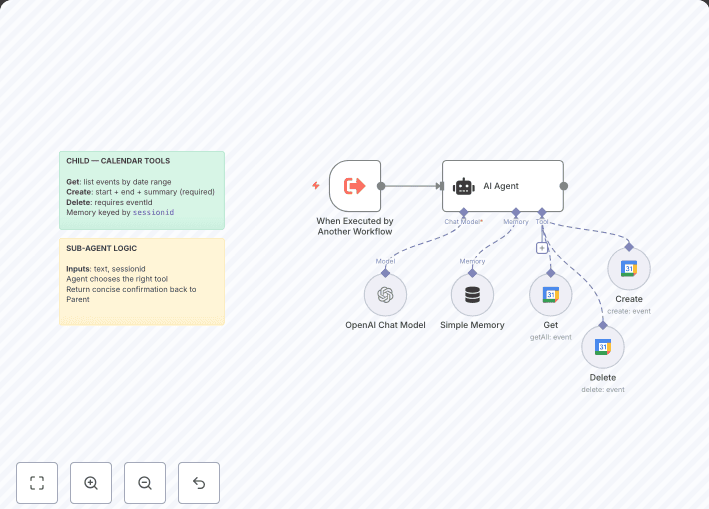This n8n template demonstrates how to automatically create tasks (or in general, records) in Baserow based on template or blueprint tables. The first blueprint table is the master table that holds the general information about the template. For example: a standard procedure to handle incidents. The second table is the details table that holds multiple records for the template. Each record in that table is a specific task that needs to be assigned to someone with a certain deadline.
This makes it easy to streamline task creation for recurring processes. Use cases are many:
Assignee / employee table. This is required to be able to assign someone to a task.Master table with procedure or template information. This is required to be able to select a certain templateDetails table with all the steps associated with a procedure or template. This is required to convert each step into a specific task.
Days to complete with the number of days to complete the step. This field will be used to calculate the deadline.Tasks table that contains the actual tasks with an assignee and deadline.Details table that are associated with the id of the Master template table.Tasks table. Adjust this names, add or remove fields if this is required for your database structure.Days to complete in the template Details table.
schedule_date property in the webhook is set to 2025-10-01 and the Days to complete for the step is 3, then the deadline will be 2025-10-04items. This matches perfect with the Baserow API to insert new records in batch./api/database/rows/table/{table_id}/batch/ to insert multiple records at once in the tasks table. Check the Baserow API documentation for further details.Call the Trigger task creation node with the required parameters through a POST request. This can be done from any web application. For example: the application builder in Baserow supports an action to send an HTTP request. The Procedure details page in the Standard Operating Procedures template demonstrates this action.
The following information is required in the body of the request. This information is required to create the actual tasks.
{
"assignee_id": integer refering to the id of the assignee in the database,
"template_id": integer refering to the id of the template or procedure in the master table,
"schedule_date": the date the tasks need to start scheduling,
"note": text with an optional note about the tasks
}
Set the corresponding ids in the Configure settings and ids node.
Check the names of the properties in the Calculate deadlines for each step node. Make sure the names of those properties match the field names of your Tasks table.
You can replace the text message in the Success response and Failure response with a more structured format if this is necessary in your application.


